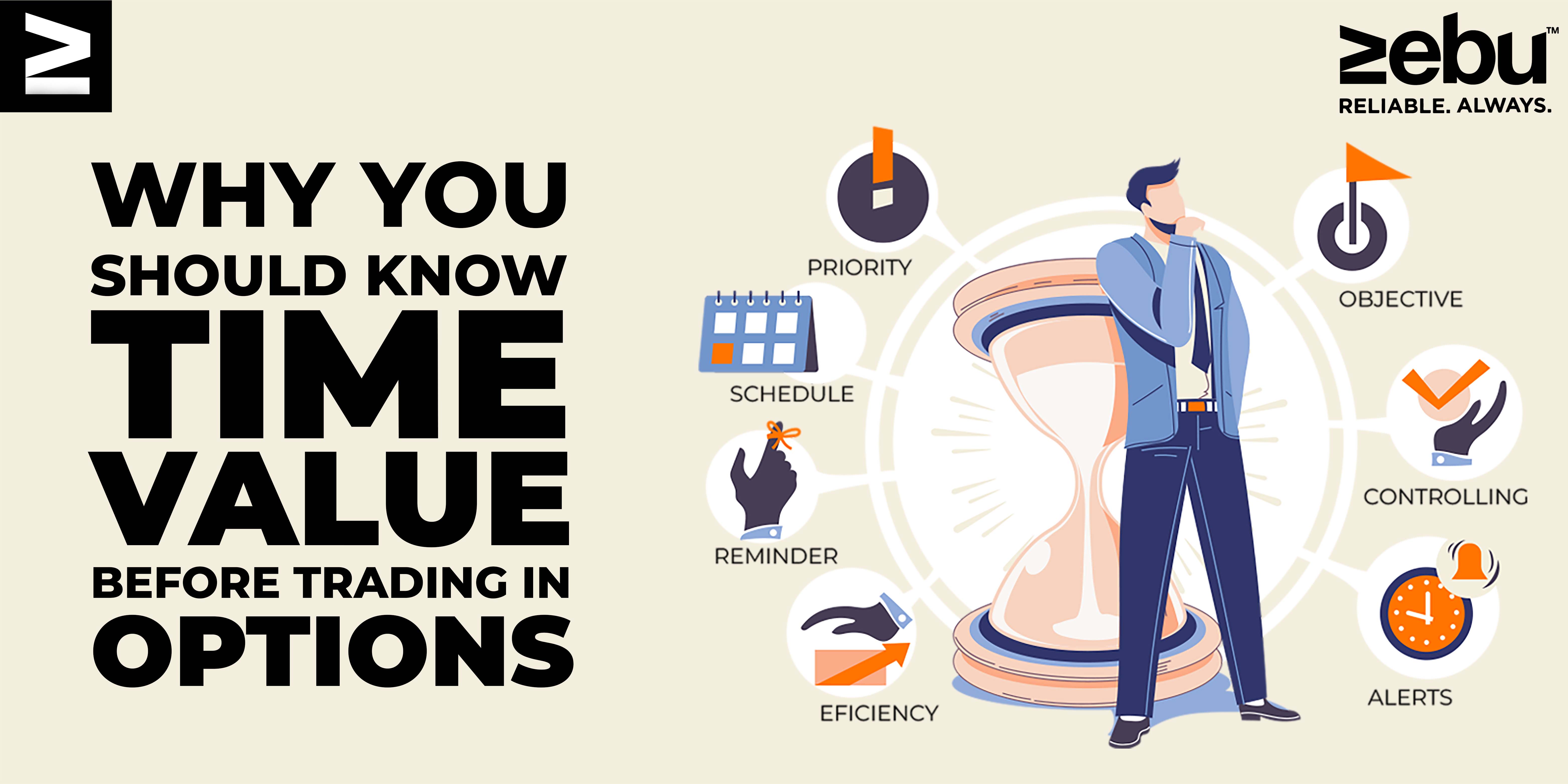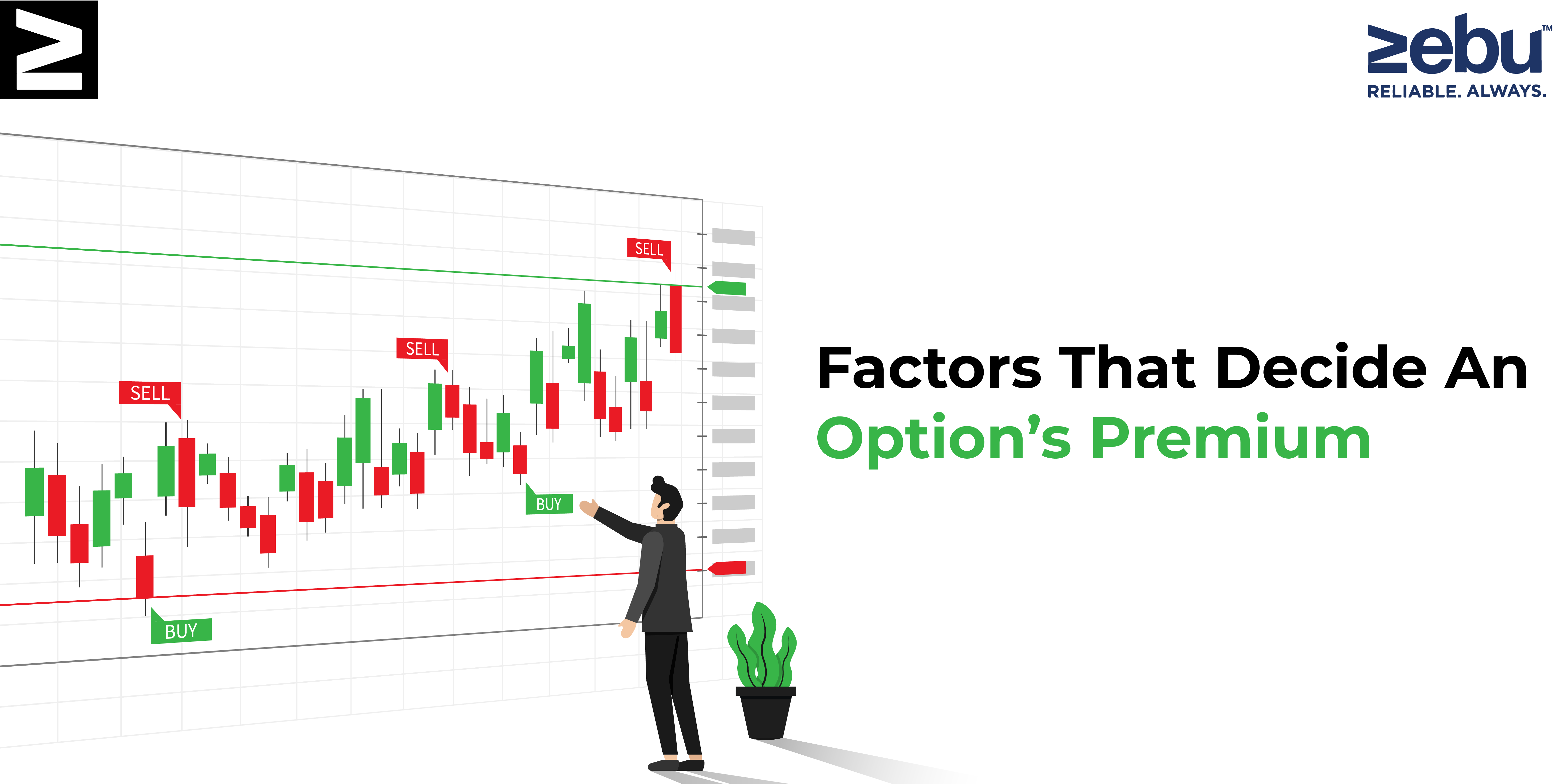
When it comes to trading options, the time value of an option is one of the most basic and important things to understand. In technical terms, it is called “Theta,” which shows how an option’s value decreases over time. Before we get into the details of time value and time decay, let’s take a quick look back at what options are and how they work.
Before we get into understanding the importance of time value in trading, we should understand that the right technology is equally important. As a share broking company, we offer our clients a seamless online trading platform and also provide them with the lowest brokerage on intraday trading, to make their journey as a trader as smooth as possible.
So, what are options really all about?
As the word “option” suggests, it is a right that doesn’t have to be used. Unlike a futures contract, which is both a right and a duty, this is not the case. The buyer of the option has the right to buy or sell the underlying asset at an agreed-upon price (strike price). If the price change goes in the buyer’s favour, he will make money, but if the price change goes against him, he will not use the option. That doesn’t seem fair to the person who sold the option, does it?
Not at all! Since the person who buys the option has a right but no obligation, the person who sells the option has a duty but no right. The seller won’t do that for free, that much is clear. The person who buys an option pays a certain fee to the person who sells the option for the right to do something without having to do it. This fee is called an “option premium,” and it is what gets traded on the NSE when you buy and sell options. The buyer of the option pays the option premium to the seller of the option as a reward for taking on the obligation without the right.
Options can be either “call” or “put.”
Call options give you the right to buy something, while put options give you the right to sell something. You buy a call option if you think the price of a stock will go up. If you think the price of a stock will go down, on the other hand, you will buy a put option. Even though it sounds easy, it’s not as easy as it sounds.
Getting to the heart of an option’s intrinsic value and time value.
Before you can understand the idea of time value, you need to know about the three types of options below.
1. An In-The-Money (ITM) option is a contract for an option that has an intrinsic value that is greater than zero. If the market price of the Nifty is higher than the strike price, a call option on the Nifty is in the money. If the market price of the 17000 Nifty call option is Rs.70 and the spot Nifty is at 17100, then the intrinsic value of the Nifty call will be Rs. 100 (17100-17000). The option’s time value will be the remaining value, which is Rs.30. So, of the Rs.70 option premium that is being quoted on the market, Rs. 100 is due to intrinsic value and Rs. 30 is due to time value. If the spot price of the Nifty is lower than the strike price of the put option, the option is in the money.
2.An “at the money” (ATM) option is a contract for an option that has a value of zero. If the market price of the Nifty is the same as the strike price, it will be an ATM for a call option on the Nifty. Since there is no intrinsic value, the time value is the only thing that makes the option worth anything.
3. Out-of-the-Money (OTM) options are option contracts where the market price is lower than the strike price for a call option or higher than the strike price for a put option. According to our formula, the intrinsic value will be negative, but since the intrinsic value can’t be negative, we’ll treat it as zero. So, only time value will make up the option premium.
At the beginning of the month, ATM options have the highest time value, followed by ITM options and then OTM options. In the long run, the time value of all three options will tend toward zero as the expiration date gets closer. Even though the OTM and ATM options themselves have no value, the option premium for ITM options will still be positive because they have intrinsic value.
Why is time value such an important part of trading options?
An option is a wasting asset because its time value tends to go to zero as its expiration date gets closer. This loss of time is also called “Theta.”
Time and volatility are two of the most important parts of time value. For both call options and put options, the time value goes up as the time to expiration goes up. Even if the option is still Out of the Money, a rise in volatility can cause the time value to rise. The person who buys the options bets that volatility will make the time value go up, while the person who sells the option hopes that the time value will work in his favour so that the option expires worthless. This is the main idea behind trading with options.
As a share broking company, we offer our clients a seamless online trading platform and also provide them with the lowest brokerage on intraday trading, to make their journey as a trader as smooth as possible. Contact us to know more.
